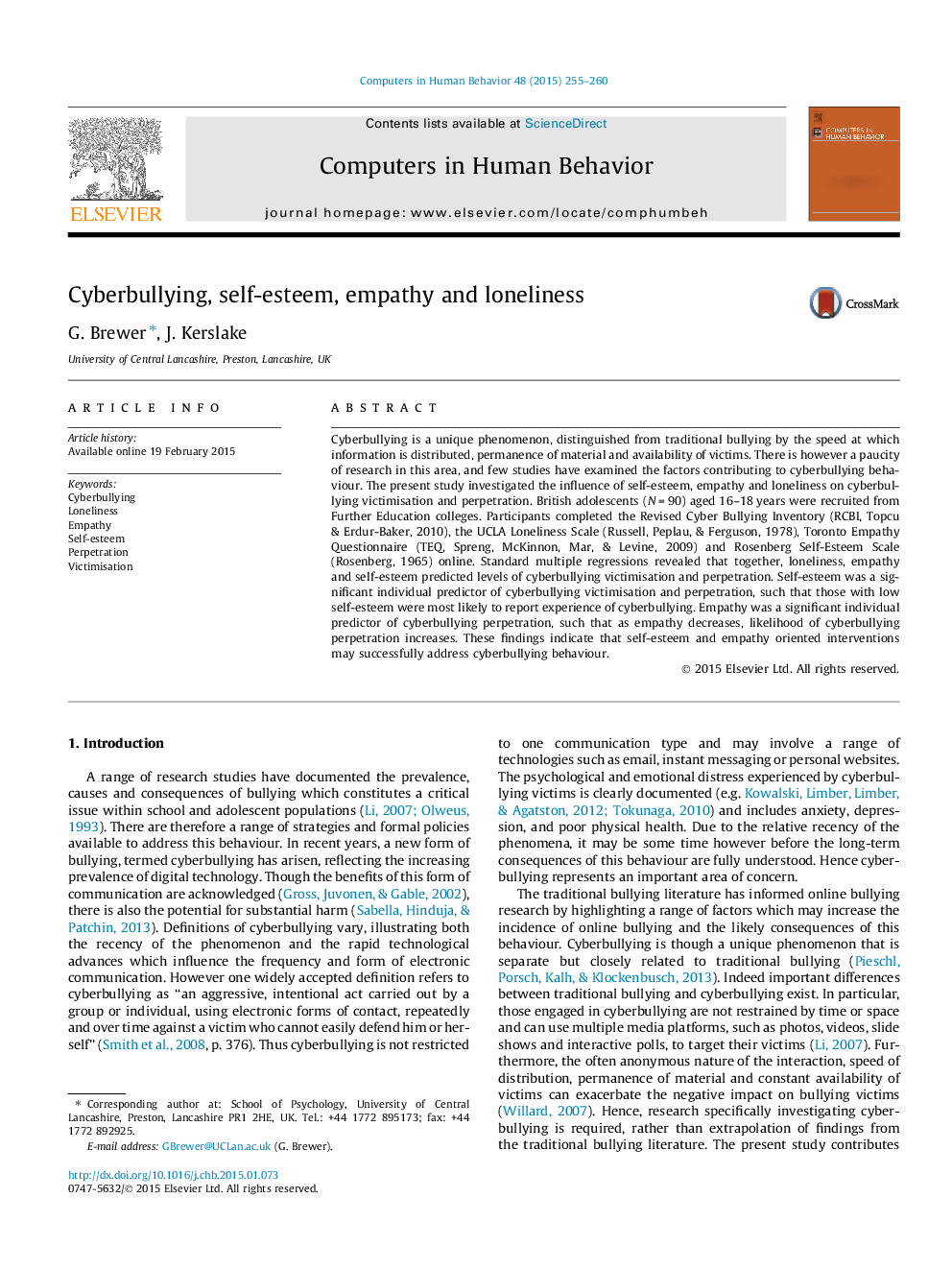| Article ID | Journal | Published Year | Pages | File Type |
|---|---|---|---|---|
| 6838348 | Computers in Human Behavior | 2015 | 6 Pages |
Abstract
Cyberbullying is a unique phenomenon, distinguished from traditional bullying by the speed at which information is distributed, permanence of material and availability of victims. There is however a paucity of research in this area, and few studies have examined the factors contributing to cyberbullying behaviour. The present study investigated the influence of self-esteem, empathy and loneliness on cyberbullying victimisation and perpetration. British adolescents (N = 90) aged 16–18 years were recruited from Further Education colleges. Participants completed the Revised Cyber Bullying Inventory (RCBI, Topcu & Erdur-Baker, 2010), the UCLA Loneliness Scale (Russell, Peplau, & Ferguson, 1978), Toronto Empathy Questionnaire (TEQ, Spreng, McKinnon, Mar, & Levine, 2009) and Rosenberg Self-Esteem Scale (Rosenberg, 1965) online. Standard multiple regressions revealed that together, loneliness, empathy and self-esteem predicted levels of cyberbullying victimisation and perpetration. Self-esteem was a significant individual predictor of cyberbullying victimisation and perpetration, such that those with low self-esteem were most likely to report experience of cyberbullying. Empathy was a significant individual predictor of cyberbullying perpetration, such that as empathy decreases, likelihood of cyberbullying perpetration increases. These findings indicate that self-esteem and empathy oriented interventions may successfully address cyberbullying behaviour.
Related Topics
Physical Sciences and Engineering
Computer Science
Computer Science Applications
Authors
G. Brewer, J. Kerslake,
